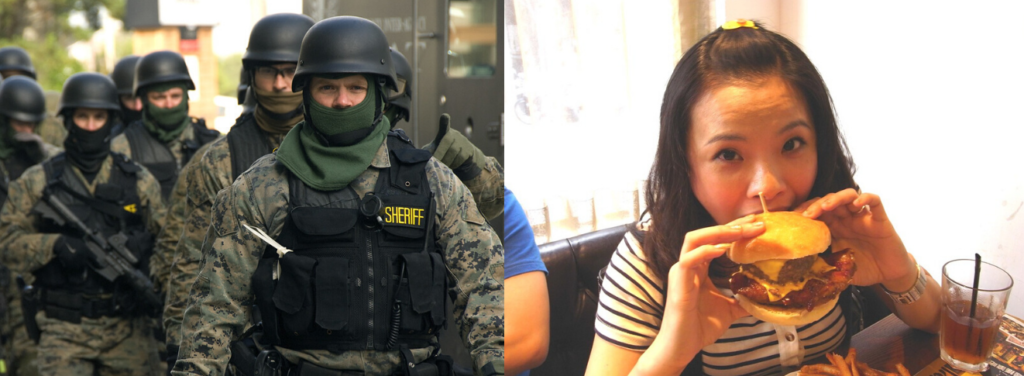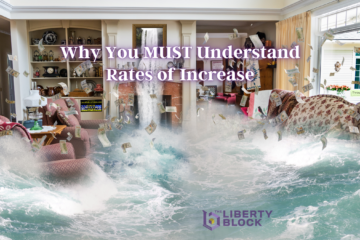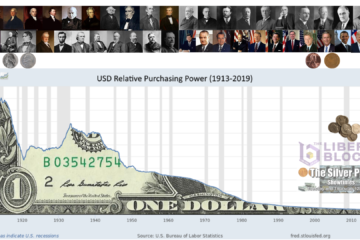In my years analyzing and debating politics, I have noticed that while some people do truly differ with others on fundamental ideologies, miscommunication is often the root cause of mutual animus. In my experience, one of the most common miscommunications involves the incredibly complicated and difficult to understand difference between legality and preference. Many of the smartest political players fail to understand this distinction. I have begun to call it “the ultimate distinction,” and once people begin to understand it, they often become libertarian or voluntaryist. That certainly was my experience.
Picture this: You’re caught up in an increasingly heated debate online with a friend. Pick any controversial topic: Drugs, guns, education, abortion, social justice, the list goes on. Your friend says that the government should not be involved in social justice or drug policy. You say that drugs are very dangerous or that social justice is an important issue, and you, therefore, assume that since he doesn’t want the government involved in guiding those policies, he must be evil or insane. He retorts that you are a stupid authoritarian bastard. You block each other.
What happened? Why did this friendship devolve so quickly?
In the above scenario, both parties failed to comprehend – or to articulate – the ultimate distinction. I have met very few people who do understand it.
Whenever you are debating anything, the first thing that you should do is set the ground rules and circumstances of the debate. I always try to articulate very clearly in every debate whether we are debating in the realm of ‘What the LAW should be’ OR whether we are discussing ‘my preferences, recommendations, personal choices, or what I think is a good idea.’
Let’s take drugs, for example
I have long believed that drugs are unhealthy and dangerous (though some are worse than others). As humans with functioning brains containing trillions of neurons, we can have nuanced opinions or at least two thoughts on one subject, I would hope. Here are my two thoughts about drugs.
- PERSONALLY – as a paramedic and healthy person who believes that drugs are generally dangerous, I do not recommend to my friends and family that they do drugs. I do not do any drugs myself.
- LEGALLY/POLITICALLY – Because I believe in freedom and I do not believe that politicians own citizens, I oppose all drug laws.
The importance of this distinction cannot be overstated. It is perhaps the most important thing in the world for rational humans to comprehend. If people could be made to understand that one can think that something is a bad idea while ALSO not supporting laws that criminalize it, this world would be damn near perfect, and a tremendous amount of fighting and broken relationships could be avoided. Sadly, many people believe that the government is our caretaker and should enforce laws not just against murder but also laws that are simply ‘good ideas’ (like how your mommy tells you to eat your vegetables and brush your teeth). Once people understand that all laws are enforced by politicians and their men with guns (police) and that all offenders are thrown in a cage, fined, or killed, they often become more libertarian and begin to support fewer ‘quality of life’ laws.
COVID-19
At the time of this writing, we are smack in the middle of the COVID-19 ‘pandemic’ (though I cautiously hope that we are nearing the end of this dystopian insanity, and not in the middle of it). Much of the debate within the US involves whether people should wear masks. Nearly 100% of people fail to clarify this distinction before debating this issue, which causes huge communication issues.
Let’s take a look at how different groups of people view the wearing of masks and government laws:
Group A: These individuals might believe that it is a good idea to wear a mask AND that the government should make it mandatory and punish those who do not comply.
Group B: These individuals believe that it is wise to wear a mask, BUT they do not believe that politicians have the authority to control people’s lives to that extent.
Group C: These individuals believe that masks are not necessary or that they are not effective enough to make a significant difference AND they believe that the government should not use men with guns to demand that we wear masks.
Helmets and seatbelts
Here in the ‘Live Free or Die’ state, I would hope that the average citizen would understand this distinction. We are the only state in the US that does not require helmets for motorcyclists and we’re the only state with no seatbelt mandate for adults. Many people in the state do understand this distinction, at least to some extent. In my experience, most people in New Hampshire do wear seatbelts while driving, although only around 10% of motorcyclists seem to wear helmets, in my experience.
Food, exercise, & smoking
Most people are somewhere on the spectrum of healthy living. We all believe that people should probably try to live healthy lives, right? Some people are super health-conscious, while some are quite relaxed about their lifestyles. I believe that all of the above people should have 100% freedom to live however they want. However, many people believe that because certain substances are harmful, politicians should – and have the power to – mandate that people avoid those substances. The problem that these health activists face in a debate is consistency; if they believe that politicians must make sure we live healthy lives, shouldn’t they also make it a crime to smoke, drink alcohol, have unprotected sex, and be overweight? Those are some of the most harmful behaviors to humans, after all.

If you have consistent principles, you must choose between letting people live freely — even if that means that they may lead lives that you consider to be unwise — OR you must support a totalitarian government that has the power and the duty to make sure that we are all 100% healthy all of the time.
“Why shouldn’t the government regulate our quality of life?”, one might ask.
A few reasons, each of which could easily stand on its own:
- Governments (politicians) have no authority. Nothing could possibly give them any authority over others except for direct consent, in which case it’s not true authority.
- Even according to the Declaration and Constitution, the government only has very limited authorities, most of which involve PROTECTING life, liberty, and property. Not included are broad powers to regulate every aspect of our lives ‘for our own good’.
- Politicians are the very last people that should be trusted. If you follow politics for a year and still trust people such as the Clinton’s, Obama’s, Bush’s, Trump’s, Pelosi, Schumer, and the rest of DC, maybe you just don’t know politicians well enough.
So, the next time that you find yourself in any discussion or debate about politics, laws, or simple lifestyle recommendations, make sure that you clarify whether you are discussing legal or personal policies. Failure to distinguish between the two could lead to huge misunderstandings. If people could become a little better at determining this distinction, we might not have billions of laws that are based on ‘good lifestyle ideas’. If a person is doing something you don’t like, you should recommend against it. But if it isn’t hurting you directly, you should mind your own business and enjoy your own freedom just as they enjoy theirs.


